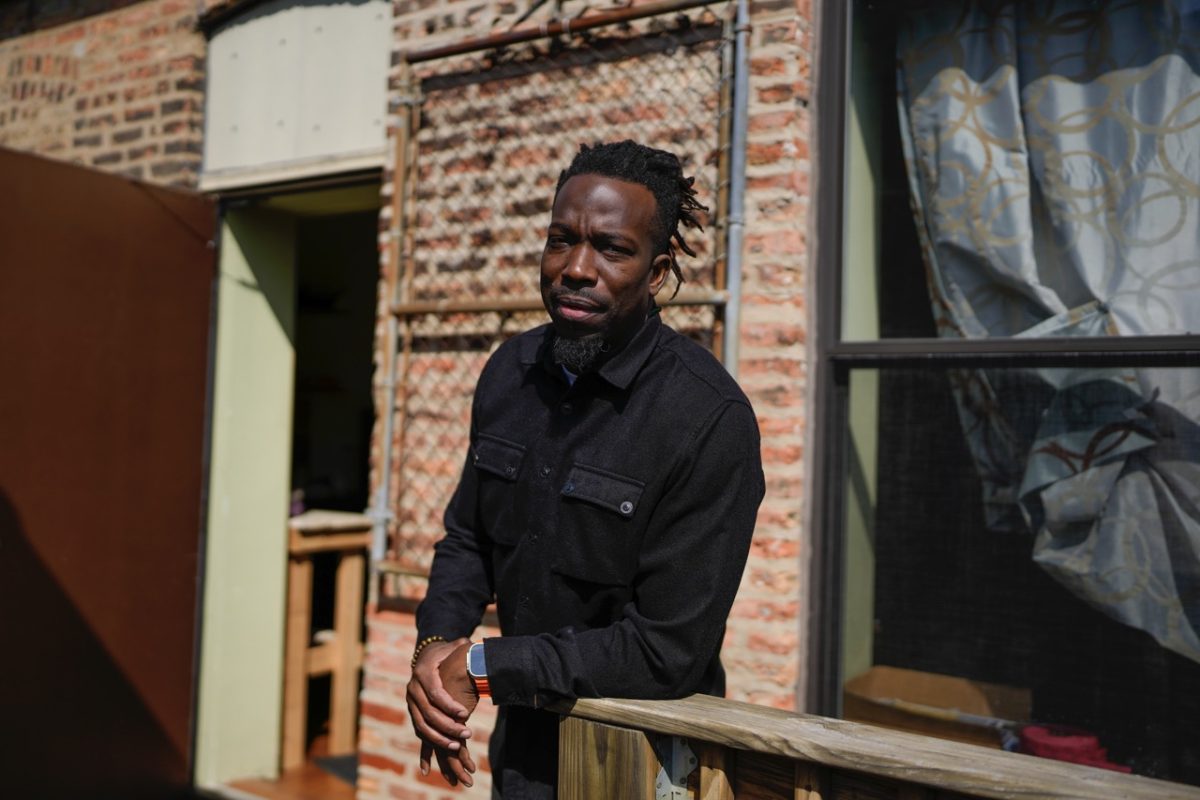A student-led demonstration took place in front of the Consulate General of Israel to Chicago on Madison Street Wednesday, Feb. 22. The group waved Palestinian flags in protest of the administrative detention that had led to the imprisonment of Khader Adnan as well as over 300 other Palestinians.
This protest came a day after Israeli officials agreed to release Adnan April 17, so long as no other charges are brought against him. For the 66 days prior, Adnan had been on a hunger strike that attracted worldwide attention.
The protest, led by DePaul senior geography student Agnieska Karoluk, was not aimed at Adnan specifically, but rather at the policies surrounding his imprisonment.
“This protest is not only about [Adnan],” Karoluk said. “It’s about the larger issue of political prisoners being held in Israel.”
Israeli military courts have practiced the use of administrative detention against Palestinians during several periods in the past. Protests such as Adnan’s hunger strike and the demonstration on Madison Street have aimed to shed light on the issue.
“Adnan’s hunger strike lasted longer than any other Palestinian prisoner,” said Karoluk.
In the past, Israeli officials have defended the use of administrative detention as necessary for national security.
“The Brits employed the same tactics against the Irish,” said protester Trass Lyons, a teacher at Truman College. “They would round up prisoners and take them away without charge.”
Adnan, who is known as being a leader of Islamic Jihad, was taken out of his bed in the middle of the morning Dec. 1 and detained in an Israeli prison. The next day he began his hunger strike.
“There are 300 Palestinians being held in prison without a trial,” said DePaul senior geography and English literature major Mia Robidoux. “It is an infringement on basic human rights.”
The protest, which remained small at about 10 people, drew the attention of only one police officer, who said, “A good, concerned citizen called.”
Some of the protesters were not fully convinced that Israel’s promise to release Adnan is legitimate.
“In the past Israel has promised to release prisoners and then failed to do so,” said Karoluk. “Even if Adnan is released, his health will be completely deteriorated from his hunger strike.”
Adnan was issued a four-month detention order Jan. 8, which was confirmed by an Israeli military judge a month later. In Israel, administrative detention orders can be issued for a maximum period of six months, but can be renewed indefinitely.
Administrative detention violates the International Bill of Human Rights. “It is a corruption of Justice,” said Lyons. “To take people without charge and detain them is … outrageous.”
“The first movement to justice is peace and freedom,” said Robidoux.
With growing unrest toward Israeli policies, it would not be unlikely to see more demonstrations of this sort take place across the world. Thousands of Palestinian prisoners have previously declared themselves in solidarity with Adnan.
“Whenever we see injustice we have an obligation to do something, whether it is marching in the street or standing on a windy corner,” Lyons said.







